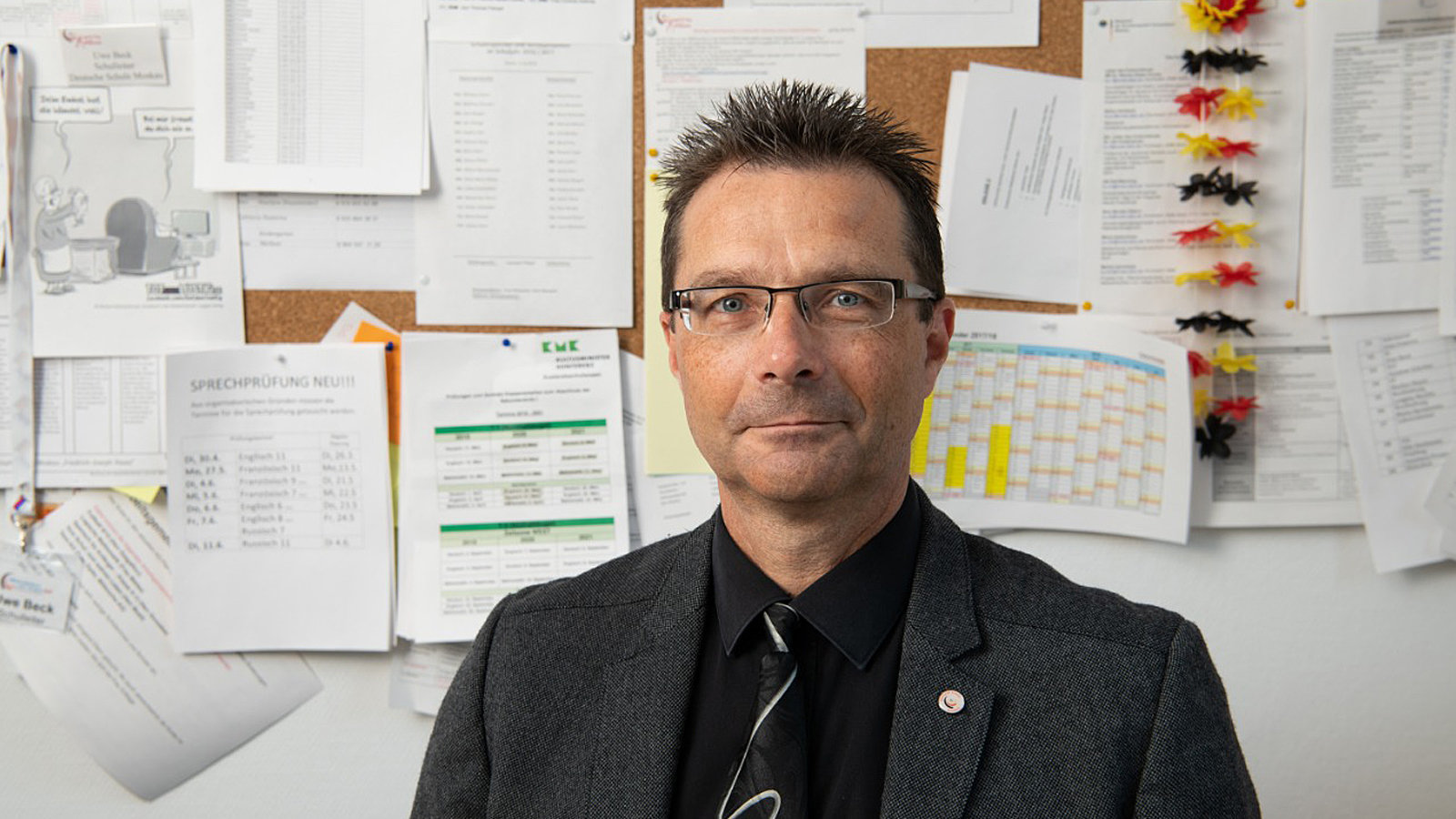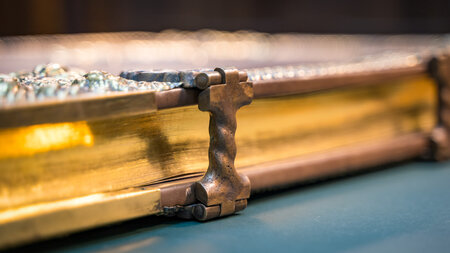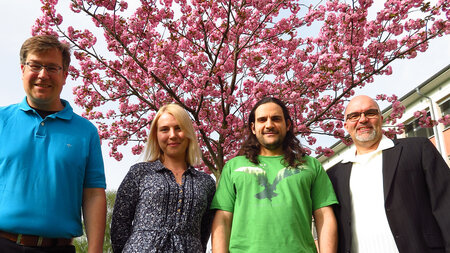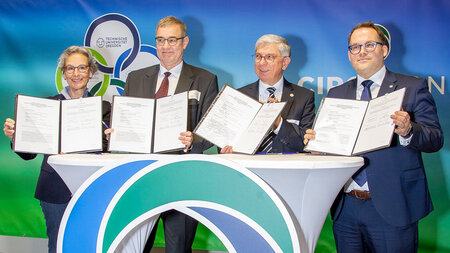“There Isn‘t Time to Be Bored“
Uwe Beck is an alumnus of Technical University Karl Marx Stadt, and since August 2015 he has been Headmaster of the German School in Moscow – in the following interview, Beck talks about the intricacies of his working day in Russia
-

Uwe Beck is an alumnus of Technical University Karl Marx Stadt, and since August 2015 he has been Headmaster of the German School in Moscow. Foto: privat
A few weeks ago, we announced that Chemnitz University of Technology will, in the future, be leading a digital education project in primary schools. Does the topic of digitalisation affect you at your school in Moscow?
That is a difficult question in and of itself. If one looks at the equipment that we are outfitted with at the German School Moscow, the answer is a clear „yes“. Projectors and laptops are available in all classrooms, and many rooms are equipped with interactive boards.
Regarding the usage of the equipment, we are also quite far along. New teacher training at the beginning of the school year helps ensure that teachers can consistently use the classroom equipment. In my opinion though, what is most important is a balanced, methodical-didactic preparation for the upcoming lessons. New media alone does not ensure effective teaching.
How does one become Headmaster of the German School Moscow?
Generally, it is a normal application process that takes place through the Central Office for Schools Abroad (ZfA). However, it is quite helpful to have already gained experience in school administration in Germany. In this case, I scored well because I had previously worked in both Dresden and Heidenau as a headmaster in a Gymnasium.
The application process requires that you are able to work outside of Germany, and then comes a selection process. There is an extensive application, and on-site interviews and discussions. In Moscow, I was able to introduce myself to the school community, and then I was approved by the school board, in cooperation with all of the committees involved in the search process.
What are your future wishes for your work and for the school?
Here in Moscow, our wishes are usually granted, or they have already been granted. The buildings are in very good structural condition, and renovations are able to be carried out quite successfully. There are modern, up to date scientific, music and art spaces. Wi-Fi and Apple TV are available in all rooms, which enables the interactive boards, MacBooks and iPads to be well-utilised.
The specialist room regulations have been recently revised, and space is now used more efficiently. An expansion of the basement level has successfully been completed, and there is now an increase in the number of rooms that can be used for teaching purposes. I quite wish, however, that relations between Germany, Russia and Europe would return to normal. From my perspective, this would be advantageous for all sides.
What sort of peculiarities can be found in your everyday professional life?
The most important thing to note here in Moscow is that the clocks tick differently. Time is very precious here, as it is limited. Due to the conditions of traveling and commuting here in Moscow, you need a lot of time to get to your destination, even with the metro service. The working day is also structured a bit differently than I am used to in Germany. Due to the various additional events that take place with our external partners such as the Goethe Institute, the Chamber of Commerce, the Rotary Clubs, the Embassy, of which we at the school are a department, Russian administrative bodies, and of course our own school events, the working day is often more than 12 hours long.
However, as the work is always interesting, you get to know a lot of very interesting people and you yourself are always learning – there isn’t time to be bored, and as such, time goes by very fast.
Do you track what is happening in Chemnitz from afar?
Yes I do, but not only in Chemnitz, rather throughout Europe. From a distance, you gain different perspectives and this makes your perspectives in Moscow even more relevant.
Based on your experiences in Moscow, what would you bring back to Germany?
Generally speaking, a greater sense of tranquility and experience in dealing with diverse peoples, whom one would not meet in Germany. I also think that a greater self-confidence, confidence in your own ability to accomplish things, are great takeaways for me. And of course, the memories of many of the people I am able to work with in my role as headmaster. Beyond that, the memories of the people who I have gotten to know outside of the school in Russian environs contribute a great deal to the pool of experiences that I will take from Moscow.
(Interview: Evamaria Moore / Translation: Jeffrey Karnitz)
Matthias Fejes
16.07.2019





